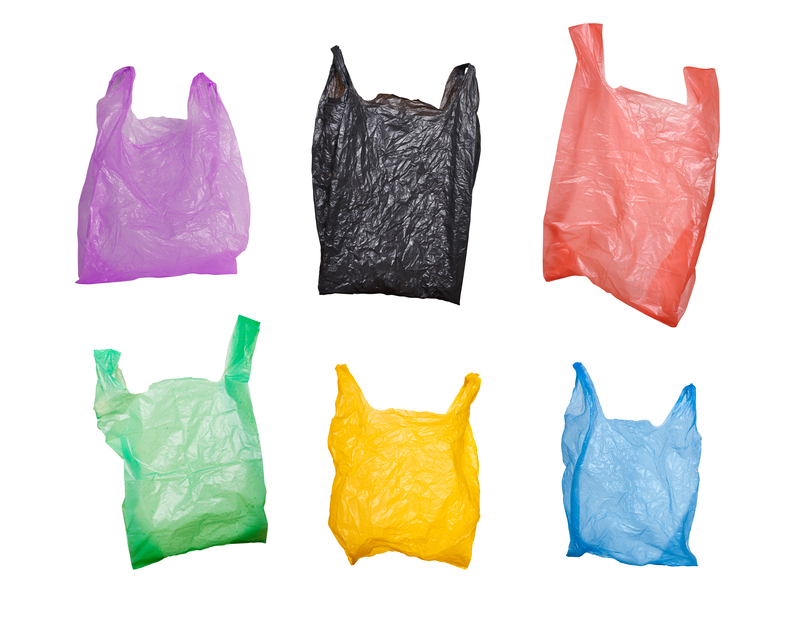A Race Against Time: Combating the Looming Global Landfill Disaster
Posted on 23/05/2024
The world is currently facing a massive waste management crisis, and the situation is only getting worse. According to recent estimates by the World Bank, the amount of solid waste generated globally is expected to increase by 70% by 2050, reaching a staggering 3.4 billion tons per year. This relentless rise in waste production has led to an impending landfill disaster that poses a significant threat to the environment and human health. In this article, we will explore the urgent need to combat this crisis before it's too late.
The State of Landfills Worldwide
Landfills are designated areas where solid waste is discarded and buried, with minimal environmental oversight. Currently, there are over 10,000 landfills around the world, with China being the largest producer of municipal solid waste (MSW) followed by the United States and India. However, these three countries are also experiencing severe issues with their landfills.
China's landfills are rapidly reaching full capacity due to its burgeoning population and growing economy. The country's economic growth has resulted in a sharp increase in MSW generation, and as a result, many landfills have reached their maximum allowed capacity. This has led to illegal dumping in unauthorized areas, causing widespread pollution and potential health hazards.
The United States, on the other hand, produces over 250 million tons of MSW annually and relies heavily on landfill disposal. However, many of these landfills are aging and lack proper lining systems to prevent leaching of hazardous chemicals into groundwater sources. Similarly, India's rapidly growing population is putting pressure on its limited land resources for landfilling waste.

The Negative Impact of Landfills
Landfills have significant adverse effects on the environment and human health. One of the major impacts is air pollution caused by decaying waste materials producing methane gas. Methane is a potent greenhouse gas that contributes to climate change and can also be harmful when inhaled. Additionally, the decomposition process produces toxic chemicals that can contaminate nearby water sources, posing a threat to both humans and wildlife.
Landfills also take up vast areas of land, contributing to deforestation and habitat loss for many animal species. They also emit foul odors, attracting pests and insects, increasing the risk of disease transmission. Furthermore, poorly managed landfills are a breeding ground for bacteria and viruses, which can lead to outbreaks of diseases such as cholera and dengue fever.
Efforts Towards Sustainable Waste Management
Thankfully, many countries are beginning to realize the urgent need for sustainable waste management strategies to combat the landfill disaster. One such approach is adopting a circular economy model, where waste is reduced, reused, and recycled rather than going into landfills. This strategy has proven successful in countries like Sweden, which has virtually eliminated their need for landfills by incinerating waste and using it to generate energy.
Another solution is implementing stricter regulations on landfill management. For instance, imposing levies on waste disposed of in landfills encourages companies and individuals to reduce the amount of waste they generate or find alternative disposal methods. Additionally, using advanced technologies like bioreactors to speed up the decomposition process can significantly reduce the volume of waste in landfills.
The Pros and Cons of Landfilling
Pros:
- Landfills are relatively inexpensive compared to other waste management methods.
- Can generate electricity by capturing methane gas produced during decomposition.
- Suitable for disposing of non-hazardous waste materials.
- Can provide job opportunities through waste collection and management.
Cons:
- Produces harmful greenhouse gases that contribute to climate change.
- Can contaminate water sources if not correctly managed.
- Takes up large areas of land that could be used for other purposes.
- A potential health hazard for nearby communities.
Tips for Reducing Waste and Preserving the Environment
- Reduce, reuse, and recycle as much as possible to minimize waste creation.
- Avoid single-use plastic products and opt for more sustainable alternatives.
- Compost food waste at home to reduce the amount of organic material going into landfills.
- Properly dispose of hazardous waste materials such as batteries and electronics at designated facilities.
- Support companies that prioritize sustainable practices and minimize waste generation.

Takeaways
The growing landfill crisis has undoubtedly become one of the most pressing environmental issues of our time. If left unchecked, it could have disastrous consequences for future generations. It is crucial to take immediate action towards sustainable waste management, reduce waste production, and find alternative disposal methods to protect our planet's health.
Conclusion
In conclusion, the looming global landfill disaster is a race against time. With the rapid increase in waste generation, it is imperative that we act now before it's too late. By implementing sustainable waste management strategies, we can reduce our reliance on landfills and preserve our environment for future generations. It is up to each one of us to make a conscious effort to adopt eco-friendly habits and play our part in combating this crisis. Let's work together towards a cleaner, greener, and healthier world for all.





